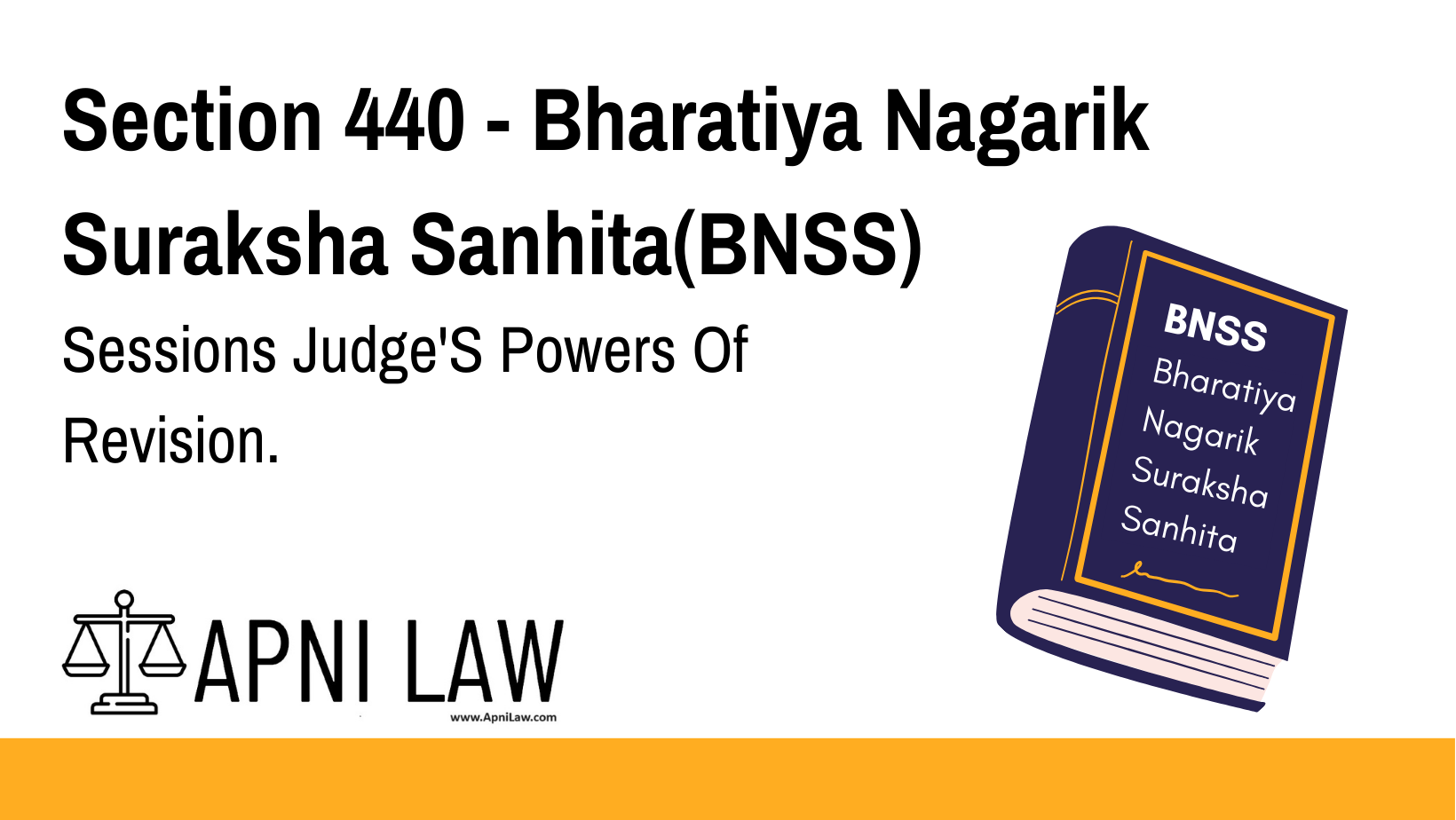Code: Section 440 BNSS
(1) In the case of any proceeding the record of which has been called for by himself, the Sessions Judge may exercise all or any of the powers which may be exercised by the High Court under sub-section (1) of section 442.
(2) Where any proceeding by way of revision is commenced before a Sessions Judge under sub-section (1), the provisions of sub-sections (2), (3), (4) and (5) of section 442 shall, so far as may be, apply to such proceeding and references in the said sub-sections to the High Court shall be construed as references to the Sessions Judge.
(3) Where any application for revision is made by or on behalf of any person before the Sessions Judge, the decision of the Sessions Judge thereon in relation to such person shall be final and no further proceeding by way of revision at the instance of such person shall be entertained by the High Court or any other Court.
Explanation of Section 440 BNSS
Section 440 of the Bharatiya Nagarik Suraksha Sanhita, 2023 (BNSS) defines the powers of a Sessions Judge in revision proceedings. It grants limited appellate authority to a Sessions Judge, ensuring that certain matters can be reviewed without unnecessary escalation to the High Court.
Key Provisions
- Authority to Call for Records
- A Sessions Judge can call for records and exercise similar powers as the High Court under Section 442 BNSS.
- This ensures efficient judicial review at the Sessions Court level.
- Applicability of Section 442 BNSS
- When a Sessions Judge reviews a case, the procedures and provisions under Section 442 BNSS apply.
- Any reference to the High Court in those provisions shall be interpreted as applying to the Sessions Judge.
- Finality of the Sessions Judge’s Decision
- If an individual applies for revision before a Sessions Judge, the decision is final.
- No further revision can be sought in the High Court or any other Court.
- This prevents unnecessary multiple appeals and delays in judicial proceedings.
Illustration
Example 1: Sessions Judge Reviewing a Case
A Sessions Judge notices an irregularity in a case record from a Magistrate’s Court.
- He calls for the record, reviews it, and exercises powers akin to those of the High Court.
- Based on his review, he modifies the order accordingly.
Example 2: Finality of Decision
A person convicted of an offense files for revision before the Sessions Judge.
- The Sessions Judge reviews the case and gives a ruling.
- The person cannot approach the High Court again for another revision under Section 440(3) BNSS.
Common Questions and Answers on Section 440 BNSS
1. What powers does a Sessions Judge have under Section 440 BNSS?
A Sessions Judge can exercise similar revisionary powers as the High Court under Section 442 BNSS, subject to limitations in appellate review.
2. Can a person appeal to the High Court after a Sessions Judge’s decision?
No. As per Section 440(3) BNSS, if a revision application is filed before a Sessions Judge, the decision is final, and the same person cannot seek further revision in the High Court.
3. Does Section 440 BNSS apply to all criminal cases?
It applies to criminal cases where a Sessions Judge exercises revisionary jurisdiction over Magistrate Court decisions.
4. What is the difference between Section 440 and Section 442 BNSS?
- Section 440 BNSS grants Sessions Judges the power to revise cases, but their decisions are final for the applicant.
- Section 442 BNSS deals with the High Court’s revisionary powers, which are broader and not subject to the same finality rule.
5. Can the Sessions Judge reduce a sentence under Section 440 BNSS?
Yes, if the Sessions Judge finds an error in sentencing, he can modify, reduce, or even set aside the sentence while exercising revisionary powers.
Conclusion
Section 440 BNSS empowers Sessions Judges to review and revise lower court decisions, reducing unnecessary burdens on the High Court. It ensures that finality in revision proceedings is maintained while still allowing for judicial oversight at the Sessions Court level.
For more legal updates, visit ApniLaw! 🚀











